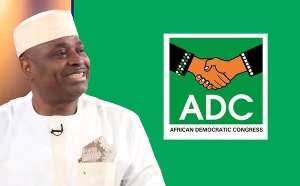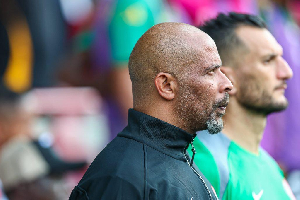Another Children’s Day commemoration season is here and with it comes concerns and anxieties over the future of the educational enterprise in Nigeria. But we do not need to be unduly worried.
As one who has been involved, for the better part of four decades, in raising children, training teachers and contributing to the educational uplift of the nation, I can very confidently assert that there is indeed a way to get the job done.
From where I stand, there are a number of critical imperatives we need to get right that will begin to establish for us that we are indeed on the right path.
The first has to do with a proper focus on ‘education for all,’ beginning, very aptly at the child level. This is very important and we need, as a nation, to fully commit to educating every child in our midst. The current situation where we have more than 10 million of our children out of school is simply not acceptable. No one must be left behind as it has to do with the educational enterprise and we must therefore go the extra mile in finding the right template, as well as the means and resources to do so.
Second, teachers are very pivotal to the attainment of success and the delivery of results in the educational arena. This is more so when we must also strive to combine the quantity and quality elements in our national education complex. So, we must not only provide educational opportunities for all of our children, we must also ensure that the diet being offered is meaningful, valuable, beneficial, sustainable and impactful. This therefore imposes a duty on us to pay ample attention to ‘training the trainers.’
A teacher that is out of their element in terms of being inadequately trained, kitted and motivated to do the job is therefore not helpful for our purpose. It is therefore our responsibility as managers of the educational enterprise in the nation to ensure that teachers are very well prepared for, and indeed do fit in with the roles that they are designated to play as career guides, motivators, instructors and enablers of some of the best possibilities of our children going forward. They must be well trained and frequently re-trained. Education, like society, is dynamic, yesterday’s skills and competencies are not going to do for tomorrow’s world. Like the children themselves, we must continue to upscale and upskill our teachers.
Third is the continued deployment and application of technology, newer technologies and even more technology. This is the reality of our world today. We don’t have any options. The marketplace of today and the world of work as it relates to the future compels that we get our acts together on this score. Helpfully, the evidence on the ground is that given the right framework, exposure and capacity moulding, our children can hold their own in the world of technology anywhere in the world. My own personal experience with the Technovation Girls Challenge is a very satisfactory pointer in this direction. Our children can do it.
Fourth, there is today a quite frightening gap between public and private schooling which is clearly at the detriment of the public schools component. Again, within the private schools, there are the minority high-flier schools and the many others that may not exactly have access to the resources, dispositions, grounding and capacities that the high-fliers have. I know this because for many years now, I have collaborated with other likeminded professionals in the area in assisting in the delivery of capacity enhancement packages for some of these not-very-well-endowed private and then, public schools. And from what I have witnessed in the field, a lot more still needs to be done.
Finally is the issue of improving the space for greater cooperation and collaboration between private sector operators and their counterparts in government as regards the educational development of the nation. It is imperative that we work together even more closely so as to be able to achieve the much-needed improvement in the sector in the overall interest of our children and indeed the nation. Truth be told, any substantial improvements in the Gross Domestic Product of the nation going forward would almost invariably be linked to capacity building improvements in particularly the educational sector.
So as we mark children’s day on May 27, we really must put the issues in the right frame. The cup of education in Nigeria is half full. We should now commit once again to doing all that is needed to make up the difference. Happy Children’s Day, Nigeria.
Opinions of Tuesday, 25 May 2021
Columnist: Modupe Adeyinka-Oni















